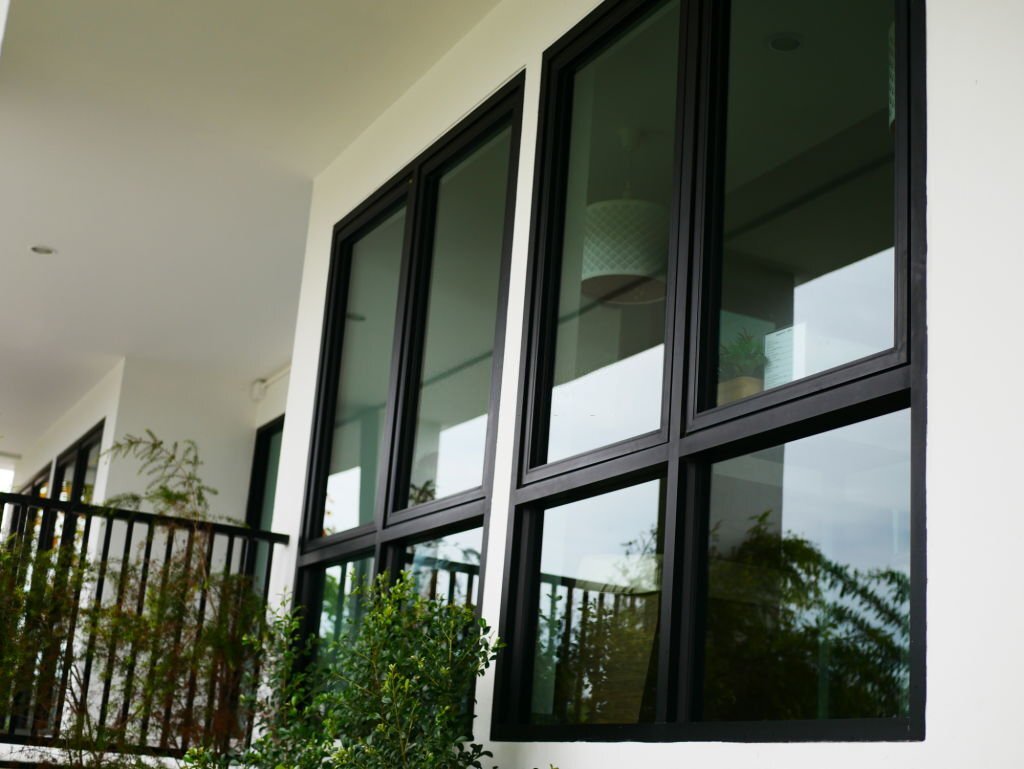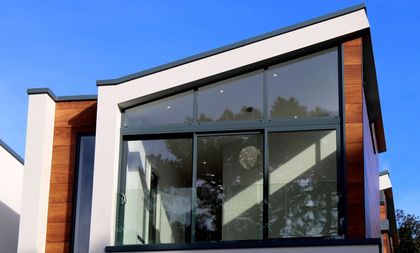Obtain Professional Suggestions on Selecting the Best Residential Window Tint for Your Requirements
Obtain Professional Suggestions on Selecting the Best Residential Window Tint for Your Requirements
Blog Article
How Residential Home Window Tinting Boosts Your Home's Energy Efficiency
Residential window tinting provides an engaging remedy for homeowners seeking to boost energy performance within their space. By using specialized movies to windows, it properly decreases warm transfer, thereby maintaining indoor temperature levels and decreasing the requirement for excessive heating or air conditioning. This not only cuts power usage but additionally gives a more comfy environment by mitigating glare. Comprehending the nuances of how tinting works and selecting the appropriate kind for your home can be pivotal. Strangely enough, what variables should one take into consideration prior to making this investment?
Understanding Home Window Tinting
Comprehending window tinting is important for homeowners looking for to enhance both convenience and power efficiency in their living areas. Residential Window Tint. Window tinting entails the application of a slim film to the interior or outside surface of glass windows. This movie can dramatically regulate the quantity of sunshine and warm that enters a home, therefore influencing indoor climate problems
There are various sorts of window tinting movies available, each with distinctive buildings. Dyed movies soak up solar power, while reflective films deflect it away from the glass surface. Ceramic films use a balance of exposure and heat being rejected, making them a preferred choice among house owners. The performance of window tinting is often measured by its Visible Light Transmission (VLT) percentage, which shows just how much light can pass via the film.
Advantages of Power Effectiveness
Window tinting not just boosts looks yet likewise plays a substantial function in improving energy efficiency within household spaces. By minimizing warm transfer with home windows, colored movies produce a more stable interior environment, which can cause substantial decreases in power intake for home heating and cooling. This power effectiveness converts right into reduced energy expenses, offering homeowners with considerable lasting financial savings.

In addition, home window tinting improves the comfort of living rooms. By lessening glow and blocking dangerous UV rays, colored windows develop a more positive setting, which can result in boosted wellness for occupants. The protection against UV rays likewise helps preserve furnishings and floor covering from fading, contributing to the longevity of home things.
How Tinting Works
Tinting films run with a mix of advanced materials and innovations created to control the quantity of solar power entering a home. Mainly made up of polyester, these movies often integrate ceramic or metal particles that show and soak up warmth. This dual capability permits them to substantially reduce the infiltration of ultraviolet (UV) rays and infrared radiation while allowing noticeable light to go through.
The effectiveness of home window tinting is gauged by its solar warm gain coefficient (SHGC), which shows how much solar power is transferred with the window. Lower SHGC worths are more effective as they represent better warm being rejected. In addition, window tints can include a variety of tones, enabling homeowners to personalize their visual preferences while boosting energy effectiveness.
Furthermore, these movies serve as a barrier, stopping heat loss during chillier months by mirroring interior heat back into the navigate to this site living area. This thermal insulation result matches the air conditioning advantages gained during warmer months, adding to a well balanced interior environment year-round. By managing solar power properly, residential home window tinting not only boosts comfort but additionally plays a vital duty in decreasing power usage and reducing energy bills.
Choosing the Right Tint

There are different sorts of window movies offered, including dyed, metalized, and ceramic. Colored movies are economical however might have limited longevity. Metalized movies offer much better warmth denial however can disrupt electronic signals. Ceramic films offer exceptional warm control without endangering visibility and are extremely durable, making them a prominent choice.
Noticeable light transmission (VLT) is one more important variable, as it shows the amount of all-natural light that can go through the colored glass. Homeowners must pick a tint with a VLT that matches their illumination preferences while still offering adequate glare reduction.
In addition, analyzing the solar warm gain coefficient (SHGC) can help establish how well a color can obstruct warmth from sunshine. A reduced SHGC shows much better warmth control, eventually boosting power efficiency.
Setup and Upkeep Tips
Appropriate installation and maintenance are vital components in optimizing the benefits of domestic home window tinting. Specialists also utilize specialized devices and strategies, which can enhance the resilience and performance of the color.
Adhering to installment, upkeep is vital to lengthen the life of the home window film. It is advised to wait at the very least 30 days prior Learn More Here to cleansing the colored windows to allow the adhesive to treat totally.
Furthermore, regular examinations are helpful. Check for any type of peeling or bubbling, which might show inappropriate installment or use in time - Residential Window Tint. Resolving these concerns immediately can stop more damage and maintain power performance. By adhering to these setup and maintenance suggestions, property owners can guarantee their window tinting remains to give considerable power financial savings and convenience for many years to come.
Conclusion
In final thought, household home window tinting serves as an effective service for boosting power effectiveness within homes. By reducing warmth transfer and blocking harmful UV rays, home window films contribute to reduce energy intake and improved interior convenience.
Window tinting entails the application of a thin film to the inside or outside surface area of glass windows. By decreasing warmth transfer through windows, colored films produce a more steady indoor climate, which can lead to substantial reductions in energy usage for heating and cooling.The efficiency of window tinting is determined by its solar warmth gain coefficient (SHGC), which shows just how much solar energy is sent through the window. By managing solar energy effectively, this contact form property home window tinting not just improves convenience but additionally plays a vital duty in decreasing energy intake and reducing energy expenses.
By reducing warm transfer and blocking dangerous UV rays, window movies add to lower power consumption and boosted indoor comfort.
Report this page